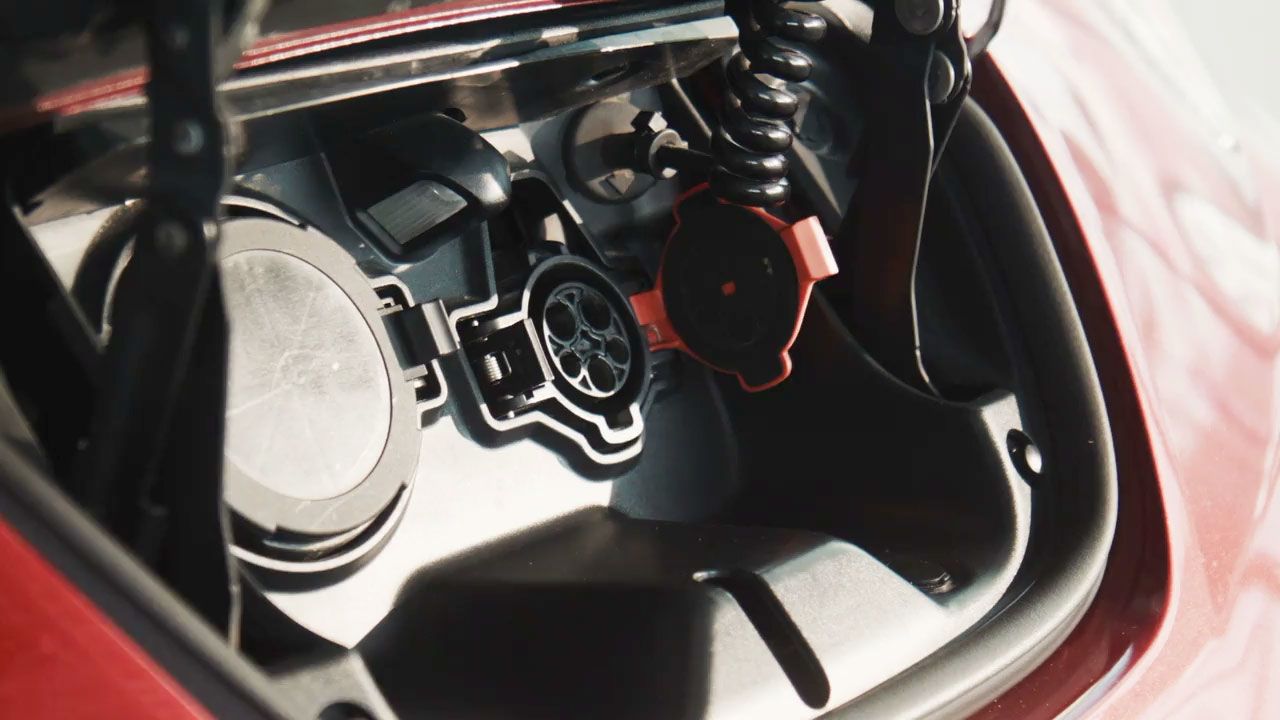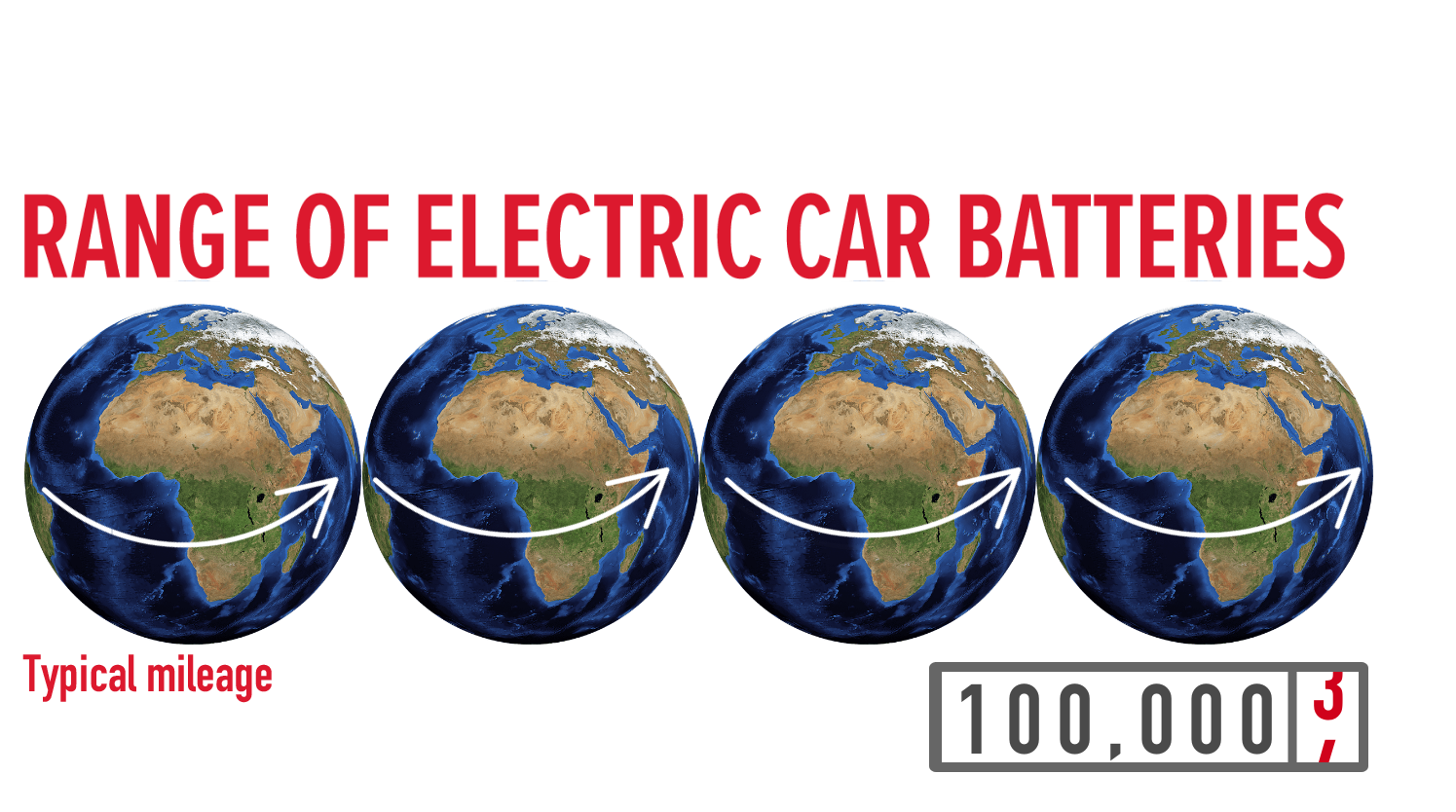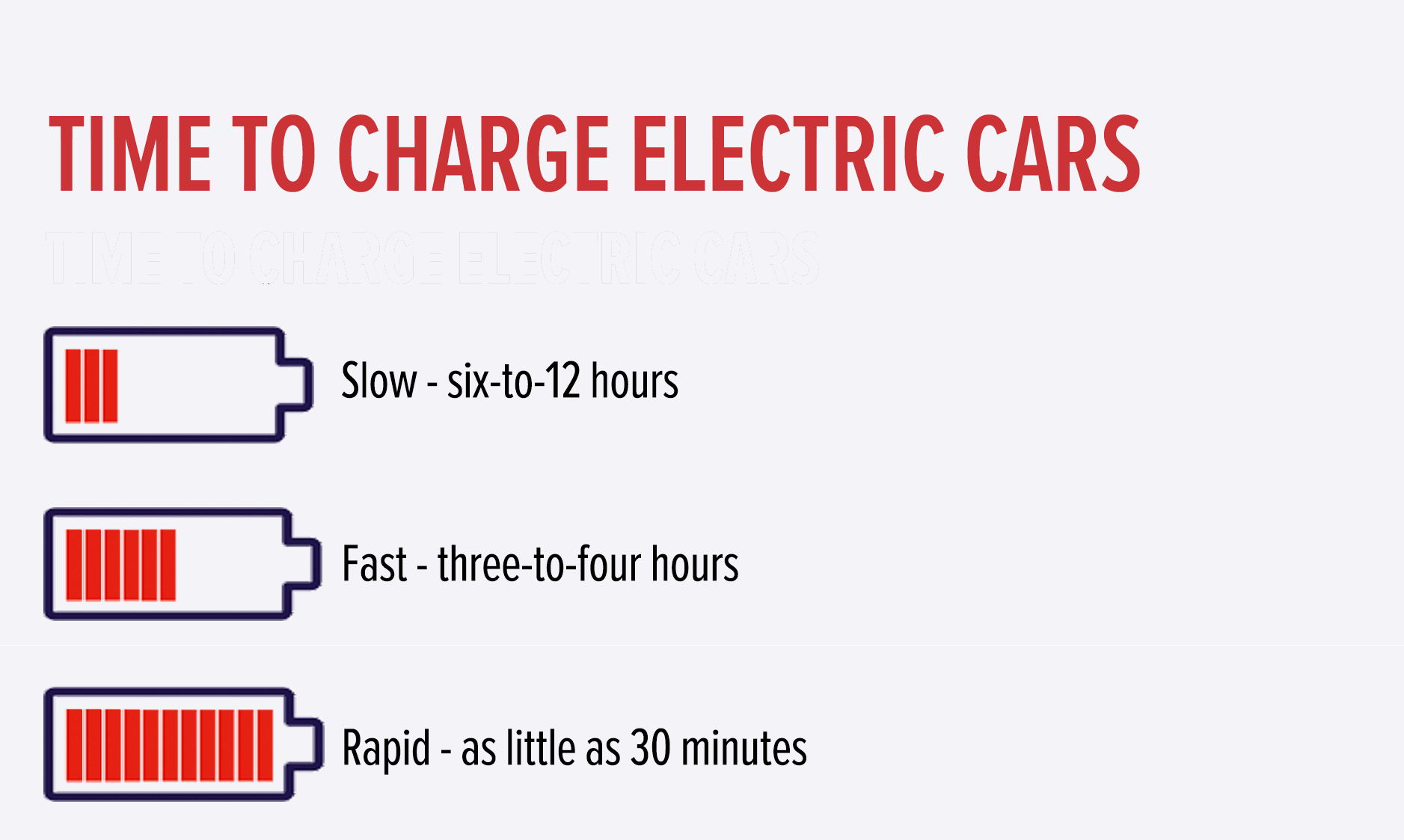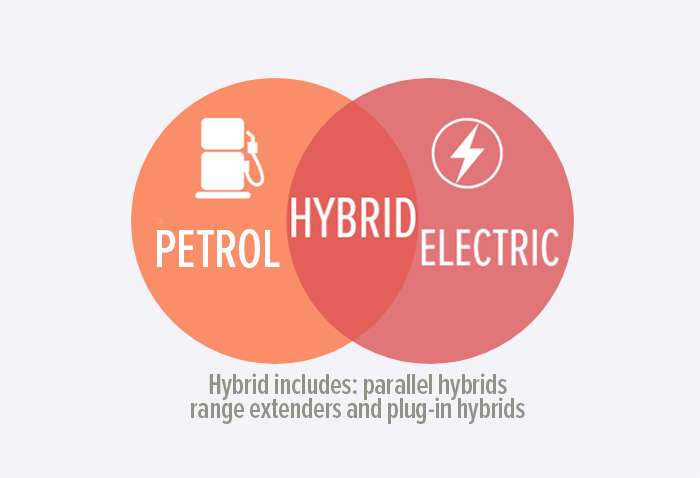The Ultimate
Electric Car FAQ
Answering every question you have about the electric car

If you’re considering buying an electric car, you no doubt have more than a few questions. Whether you’re unsure about the charging process, the cost or the impact on the environment, our electric car FAQ is here to help. You’ll find that the questions are split into sections, making it quicker and easier to find the answer you’re looking for.
ELECTRIC CAR BATTERY
How does an electric car battery work?
The electric car has an electric motor instead of the internal combustion engine that’s used in petrol-powered vehicles. So how does the electric car battery work? The battery uses electricity stored in its battery pack in order to power the electric motor and turn the vehicle’s wheels. The battery can then be recharged using grid electricity via a wall socket or through the use of a dedicated electric car charging station.
While the battery of a conventional petrol or diesel car serves to start the engine and run certain accessories, the electric car battery is used to power everything in the car. Since the battery is such a vital component of the electric car, it’s important that it has a good lifespan. According to today’s electric car warranties, electric car batteries are expected to last around eight years or 100,000 miles.
How are electric car batteries made?
An electric car’s battery usually relies on lithium-ion technology. These batteries are often used in portable electronics, such as mobile phones and laptop computers, due to being light and conductive — offering more energy. In terms of how electric car batteries are made, the lithium-ion battery consists of the positive and negative electrodes and an electrolyte.
Lithium-ion batteries offer a number of benefits, such as being less likely to self-discharge (to lose their charge when not being used) and offering good performance even in high temperatures. The technology hasn't yet fully matured and, as such, we should see an increasing number of electric cars using new variations of lithium-ion technology – making them even more environmentally friendly and further increasing their lifespan in the process.
What’s the lifespan of an electric car battery?
As you’d expect, the electric car’s battery is the key component of the electric car. It’s therefore useful to know the lifespan of an electric car battery. Charging and discharging a battery is known as a cycle and, in the case of lithium batteries, this degrades over time as the cycle number increases.

In most cases, manufacturers are offering warranties of eight years/100,000 miles on electric car batteries. The number of years and miles that a person gets out of an electric car battery often comes down to how they treat it. There are a number of things you can do in order to lengthen the battery life of your electric car:
- Keep it cool (avoid high temperatures)
- Be careful not to overcharge
- Avoid deep discharging
- Plan ahead for extended storage
What happens if my electric car runs out of battery?
Some new electric car owners have what’s often referred to as “range anxiety”. It’s normal to wonder what will happen if your electric car runs out of battery. However, knowing that your electric car can likely go for 100 miles between charges should be enough to alleviate any such fears. Much like with a petrol or diesel-powered car, running out of juice results in your electric car coming to a stop.
While fuel can be brought to a conventional car, an electric car would be towed to the nearest charging station. However, what many electric car owners find is that there is always more energy than they realise. So even when you think you’re out of electricity, there’ll likely be enough to get you to the nearest electric car charging point.











ELECTRIC CAR CHARGING
How long does it take to charge an electric car?

Like many, you’re probably wondering how long it takes to charge an electric car. While it does take longer than topping up a petrol or diesel car’s fuel tank, it can be as little as 30 minutes, depending on the size of the battery and speed of the charge point. There are three types of EV charging available:
- Slow (up to 3kW)
- Fast (7-22kW)
- Rapid (43, 50 or 120kW)
Slower charging units are the most affordable and are well suited to overnight charging from home, which can take anything from six-to-twelve hours. Faster and more expensive electric vehicle charge stations cut charging time to just three-to-four hours while rapid chargers can charge an electric car in as little as thirty minutes. Rapid charging stations can often be found at UK motorway services. Even if charging takes as much as twelve hours, many people simply charge their electric car overnight when it’s not in use.
Where can I charge an electric car?
When it comes to where you can charge your electric car, there are three main options available to you: at home, at work and in public. Charging your electric car at home offers a high level of convenience, particularly if you have off-street parking. Having an electric car charging station at home allows you to charge your electric car overnight while you sleep. However, you can also easily plug your electric car into your domestic three-pin socket, just like charging your mobile phone or laptop.
Charging your electric car in public is becoming increasingly easy. At present, there are more than 10,000 electric car charging points available in the UK, making it one of the largest networks in Europe. You can find public charging stations on main streets, motorway services and shopping centres as well as some residential streets. Some of these public electric car charging points are even open access, meaning anyone can use them for free. You may even come across a rapid charging station which will allow you to fully charge your vehicle in as little as thirty minutes.
Alternatively, if you have on-street parking, you may still be able to have an electric car charging point added to your street by speaking with your local authorities. Another option that some electric car owners take advantage of is using electric charging facilities at work. These may be for free, allowing electric car owners to save even more money. Last but not least, there are an increasing number of public electric car charging points in the UK which can be located via an electric car charging points map.
How do I charge an electric car?
It’s normal to have some doubts about how to charge an electric car but in reality, it’s easy. In terms of charging an electric car at home, you can simply use a standard three-pin plug with an EVSE cable. Alternatively, you can use a wall-mounted home charging point installed by a certified professional. Charging an electric car at work is similar and typically involves plugging in via the cable that comes with your car.
How many public charging stations are there in the UK?
Electric vehicle charging points are being added on a daily basis in the UK. Indeed, the UK has one of the largest networks of public charging stations in Europe. According to Zap Map statistics, there are public charging points available across over 6,300 locations with a total of over 10,000 devices and 18,000 connectors, at the time of writing.
In terms of rapid chargers, these are available in almost 1,200 locations in the form of 1,700 devices and almost 3,900 connectors. The UK regions with the most electric car charging connectors are Greater London (22.5%), Scotland (15.1%) and the South East (13.7%).
How do I get an electric car charging point installed at home?
In order to get an electric car charging point installed at home, you’ll need a certified professional. What’s more, you’ll also need off-road parking. The installation is surprisingly simple and typically takes two to three hours. The electric car charging station will typically be mounted on an exterior wall or garage close to where you park your electric car.
You can book an installation online at your local car retailer. A good charging provider will carry out the installation and then show you how to use your new electric car charging point, answering any questions you may have. You may even be able to get a discount on your charging point through the OLEV grant.
ELECTRIC CAR PERFORMANCE AND MAINTENANCE
How far can I drive with an electric car?
An electric car's range depends on a number of factors - the make and model of the car, the style of driving, and the use of features such as air conditioning. In terms of the lifetime of the vehicle, most electric car warranties cover the electric car for 100,000 miles. However, for day-to-day driving on a full charge, you can expect to drive around 100 miles before you need to recharge.
A range of around 100 miles per day is more than enough for most people. If you’re likely to drive more than this on a regular basis, you should still be able to find an electric car that fits your needs, especially as the range of electric vehicles continues to grow and technology evolves. Some of the premium electric cars with the longest range can go for over 200 miles.
How fast can an electric car go?
While top speeds of electric cars tend to be slower than those that are petrol and diesel powered, many people are surprised by the sheer acceleration of the electric car. While electric cars don’t typically have high top speeds, they have fast acceleration due to their high torque – how effectively the motor's power is translated to the vehicle's motion. Power is instantaneous and readily available much quicker which makes the electric car fun to drive.
Naturally, the speed of the electric car really depends on the vehicle’s make and model and the type of electric motor that is powering it. However, most electric cars on the market can comfortably reach 80-90 mph, which is more than enough for most driving situations you’re likely to face.
What’s the difference between the electric car, hybrid and plug-in hybrid?

As you’ve explored the various options available to you, you may well have come across not only the electric car but also the hybrid and plug-in hybrid. So what’s the difference? While an electric car is fully electric, a hybrid vehicle has electric elements but still has a petrol engine. Hybrid describes a car that is petrol-electric, using a combination of both to power the car.
Meanwhile, a plug-in hybrid can be plugged into the national grid much like a fully electric car (though this is not a requirement and some owners choose not to do so). The plug-in hybrid can then drive on electricity for a short range (approximately 20-40 miles), reducing the amount of petrol required.
Do electric cars drive differently to conventional vehicles?
Drivers will notice some differences when switching from a manual transmission vehicle to an electric car. The differences will be more subtle for those who are used to driving vehicles with automatic transmission. In particular, driving an electric car is a much quieter experience with little in the way of noise or engine vibrations. Furthermore, electric cars are known for their excellent acceleration since the car doesn’t need to shift up through various gears. As such, the electric car driving experience is smooth and uninterrupted.
What does a regular service for an electric car involve?
With many fewer moving parts, the electric car requires less maintenance than conventional petrol and diesel cars. Indeed, there isn’t much inside an electric car motor that can wear out, making maintaining an electric car much simpler. The main thing to monitor is the battery which is an expensive component that can fade over time.
Since the technology surrounding electric cars is still in its infancy, many local garages are still catching up in some respects. As electric cars become more common, it should be even easier to find a mechanic who is able to service your electric car. What’s more, this will see the cost of maintaining an electric car become more competitive too. Aside from the battery, the obvious things to monitor are the brakes, tires, body and fluids.
Are all electric cars automatic?
While electric cars can have gears, it’s just not necessary since the electric car can produce torque from zero revolutions per minute (rpm). In contrast, vehicles with internal combustion engines only generate sufficient torque at a comparatively higher rpm. Having maximum torque immediately available means there’s no need for more than one gear.
Here are some of the advantages of automatic electric cars:
- Easier to drive
- Less work in traffic
- More reliable
- Allow driver to concentrate on the road










ELECTRIC CAR COST
Are electric cars expensive?
Electric cars tend to be more expensive than the average petrol or diesel car, partly due to the newness of the technology and also because of the cost of the battery. It’s worth knowing that the battery of an electric car can cost several thousand pounds to replace. However, the good news is that battery prices should become more competitive over time as the electric car continues to grow in popularity.
However, many people find they can save significantly in a number of ways. First, lower fuel and maintenance costs can offset the higher initial price. Research published in the journal Applied Energy found that electric cars are cheaper to own and run than petrol or diesel. What’s more, there are a number of UK government grants that can make buying an electric car cheaper.
Are electric cars more expensive to insure?
Yes, electric cars do tend to be more expensive to insure. This is because of the cost of replacement parts, particularly the electric battery. However, there are specialist insurers who can offer more competitive insurance quotes.
Electric car insurance prices will come down over time as the electric car becomes more prevalent and the technology more common. As the cost of replacing and repairing parts lowers, insurance companies will be able to offer more attractive quotes. Naturally, having a clean driving record and a good credit score can go some way.
Here are a few more tips for getting the most out of your car insurance:
- Talk to specialist insurance providers
- Don’t be afraid to shop around
- Think carefully before adding younger drivers to your policy
- Pay up front
- Look for discounts for eco-friendly vehicles
What does it cost to charge an electric car?
The cost of charging an electric car can vary based on whether you charge at home, at work or at a public electric car charging point. What’s clear is that you can save big by charging an electric car as opposed to filling a petrol or diesel vehicle with fuel. Charging an electric car at home typically costs £3-4 for a full charge and is the most cost-effective method, particularly at night when electricity rates are cheaper. In contrast, some of the rapid public charging stations cost £6-8 for 30 minutes of charging.
Sometimes, charging your electric car may be free of charge. An increasing number of workplaces offer employees free electric car charging facilities while public electric car charging stations at supermarkets, restaurants and hotels are sometimes free in order to entice customers. You can always use Zap Map to find these near you.
Are electric cars eligible for government grants?
Yes, there are numerous UK electric car government grants available which helps make the electric car a particularly attractive proposition. Here are the main UK government grants available:
- Plug-in electric car grant: Up to £2,500 towards the cost of fully electric category 1 vehicles (minimum electric-only range of 70 miles and CO2 emissions of 50g/km or less).
- OLEV grant: £500 towards the cost of an electric car charging station in your home.
- On-Street Residential Chargepoint Scheme: Up to £7,500 towards an electric car charging point available to local authorities.
- Workplace Charging Scheme (WCS): £500 for an electric car charging station for a business. This government scheme offered by OLEV allows businesses to claim up to 20 charging stations.
- Motability Scheme: Allows disabled people to exchange their motability allowance for a new electric car.
ELECTRIC CAR SAFETY AND THE ENVIRONMENT
Are electric cars dangerous?
The electric car is no more dangerous than a car with an internal combustion engine. One of the main differences is that the electric car doesn’t carry gasoline, which reduces the risk of fire in an accident. However, there are some questions surrounding lithium-ion batteries used in electric cars. In response, car manufacturers are coming up with a range of safety features to ensure batteries are well protected in case of accidents.
The electric car makes very little noise, which is seen as a major positive. However, some people consider the quiet nature of the electric car to be dangerous to pedestrians. A new law has been created to tackle this. From July 2019, all new models seeking approval in Europe will have to emit a noise when travelling at low speeds.
Can an electric car battery explode?
While the Lithium-ion battery used in the electric car can potentially be damaged in an accident, the chances of the battery exploding are very slim. Electric car manufacturers are turning to a number of precautionary devices in order to prevent the electric battery from becoming damaged.
For example, air-cooling systems prevent the battery from overheating. Furthermore, fuses and circuit breakers may disconnect from the battery when collision detectors send a signal. As electric cars become more common, the more safety features will be added to further reduce any potential danger, making electric cars safe in accidents.
Are electric cars better for the environment?

The electric car’s main selling point is that it’s better for the environment. That’s because the electric car runs on electricity rather than petrol, reducing emissions in the process. A study by Belgium’s VUB University showed that electric cars emit 50% less greenhouse gas than diesel cars. So while it’s on the road, the electric car is indeed very eco-friendly.
However, it’s worth keeping in mind that emissions are produced in the generation of electricity. The energy produced may well come from a power plant but if the energy can come from renewable sources, the electric car can make an even greater contribution to the environment.
Got more questions? Check out these FAQs about the Honda e, and also this glossary of electric car terms.




